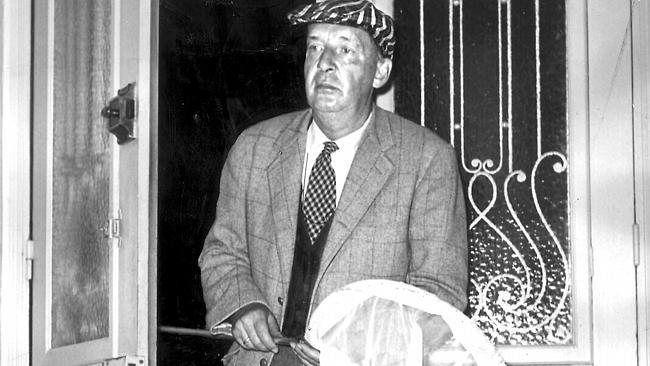Nabokov: writing Lolita in America dominates Robert Roper biography
Vladimir Nabokov’s 20 years in the US is meticulously explored in a new biography.

Speak, Memory, Vladimir Nabokov’s nostalgic 1967 memoir, reflects on his life from the age of three to 41, taking us from early-20th-century Russia, soon to be engulfed by revolution, to Europe at the start of World War II. He planned a sequel to it based on his American years, but Speak On, Memory was never written, partly because much of that experience had found an outlet in his novels.
As Robert Roper argues in his literary biography, it was America that made Nabokov the master we now admire. Nabokov in America, a detailed account of the 20 years the writer spent there, revisits some of the less widely known facts and draws a number of fresh analogies.
Nabokov, his wife Vera and their son Dmitri arrived in the US in 1940, having fled Germany via France: Vera’s Jewishness meant they could no longer stay in Europe. America, according to Roper, had been an ‘‘invitation to adventure’’ to Nabokov since reading as a boy The Headless Horseman, a western by Mayne Reid. Growing up in an Anglophile family, he learned to read in English before he could do so in Russian, and although he wrote mainly in Russian in the first two decades of his career, his move to the US signalled a new start.
One of the highlights of this biography is Nabokov’s passion for butterfly collecting: a talented lepidopterist, he found a rich terrain for his passion in the American west, where the family travelled extensively.
Butterflies punctuate the book, framing Nabokov’s literary work, as the biographer meticulously follows the writer’s progress in the new environment.
At first Nabokov was not entirely happy with his English — a quaint product of the Old World — and it took him some years to master it. He never achieved ‘‘the planned Russification of the American reader’’ (that he did have such plans is one of the book’s more questionable claims), but his own Americanisation was certainly successful.
The road to Lolita was full of research, both linguistic and cultural: Nabokov gathered slang words and studied teenage habits; the trips to the west, where the family usually stayed in motels, provided both practical details and vivid images for Humbert and Lolita’s year on the road. One of the most original ideas in this book concerns Dmitri’s influence on Lolita: Humbert’s obsession with his stepdaughter is seen here as the ‘‘dark negation’’ of Nabokov’s protective love for his own son.
First published in France in 1955, Lolita reached the US three years later and immediately became a sensation. Although ‘‘Hurricane Lolita’’ is at the centre of Roper’s narrative, ample space is given to Nabokov’s other books, including the novels Pale Fire and Pnin, and his translation of Eugene Onegin, running to 1895 pages and considered by many the best English rendition of Pushkin’s masterpiece.
When these works brought their author fame, one person who did not join in the praise was Edmund Wilson, the most influential American literary critic of the time and a good friend of Nabokov’s. Their correspondence was a source of intellectual pleasure to both, despite differences in their political outlook: Nabokov hated communism, while Wilson was left-wing.
What made the two grow apart was Wilson’s appreciation of Boris Pasternak’s Doctor Zhivago (Nabokov thought it a Soviet propaganda stunt) as against his negative reaction to Onegin — and to Lolita, which he liked less than anything else by Nabokov. Unlike many, Roper does not believe Wilson’s scathing remarks resulted from jealousy and is convinced his support generally was crucial to Nabokov’s success in the US.
An interesting angle explored in the book is Nabokov’s views on other American writers. He had an ‘‘especially keen disregard for Hemingway. Faulkner he dismissed with similarly appalled commentary’’, while ‘‘Salinger was the rare author of his time of whom Nabokov did not speak with disrespect’’. In fact, Roper demonstrates that The Catcher in the Rye and Lolita ‘‘are vaguely aware of each other’’.
These observations complete the portrait of the writer within the American canon. Yet when it comes to the Nabokov phenomenon, Roper admits that, despite there being many interpretations, ‘‘the myth remains, and so do the books, ever ready for rediscovery’’.
The Spectator
Nabokov in America: On the Road to Lolita
By Robert Roper
Bloomsbury, 369pp, $39.99



To join the conversation, please log in. Don't have an account? Register
Join the conversation, you are commenting as Logout